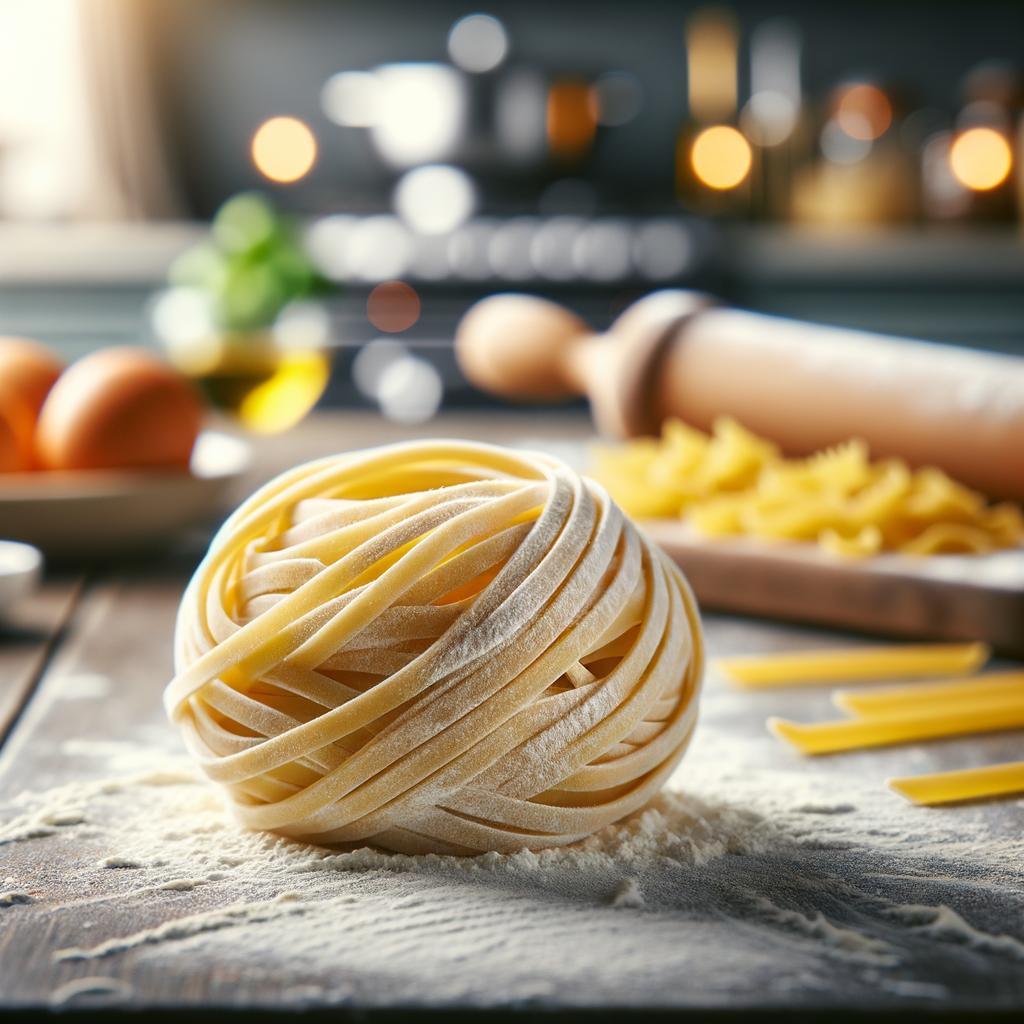for the Pasta Dough:

Description
Pasta dough, the heart and soul of Italian cuisine, is a deceptively simple ingredient. It is an enchanting mixture of flour, water, and often eggs, kneaded into a pliable mass. Its appearance is humble - a soft, pale, and smooth entity, yet its texture is a delightful paradox, being both firm and tender. When cooked, it transforms into an al dente masterpiece, offering a subtly wheaty flavor, and a satisfying chew. What sets pasta dough apart from other doughs is its versatility. It can be shaped into a plethora of forms - from the delicate angel hair to the robust rigatoni, each shape providing a unique experience in every bite.
Primary Uses
Pasta dough is the canvas upon which countless culinary masterpieces are painted. It is the backbone of many Italian dishes, from the simple yet comforting spaghetti aglio e olio, to the rich and hearty lasagna. Beyond Italy, pasta has found its place in almost every cuisine around the world, be it in the form of Hungarian noodles or Chinese lo mein. Aside from its culinary uses, pasta dough also holds a special place in cultural celebrations. In Italy, different shapes of pasta are associated with different holidays and events, symbolizing good luck, long life, and prosperity.
History
The history of pasta dough is as rich as the dishes it creates. It is believed to have originated in Central Asia, before making its way to Italy via the Silk Road. Over the centuries, pasta has evolved from a luxury food enjoyed by the nobility to a staple of the common people. It has survived wars, economic depressions, and cultural shifts, and has managed to adapt and thrive in every situation. The story of pasta dough is a testament to human ingenuity and resilience, and is steeped in folklore. One such tale involves Marco Polo, who is often (erroneously) credited with introducing pasta to Italy from China.
Nutritional Information
Pasta dough, while simple, is packed with nutritional value. It is an excellent source of carbohydrates, providing energy for the body and brain. It also contains protein, particularly when eggs are included in the dough. Depending on the type of flour used, pasta can also be a good source of fiber and various vitamins and minerals, such as B vitamins and iron. Compared to other types of dough, pasta dough is typically lower in fat and sugar. However, like all foods, it should be consumed in moderation as part of a balanced diet. The beauty of pasta dough lies not just in its taste and versatility, but also in its ability to nourish the body and soul.

